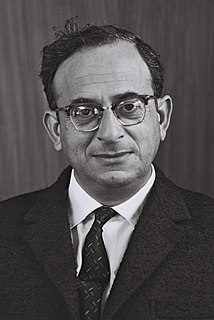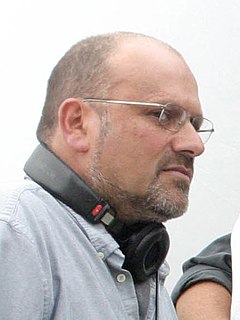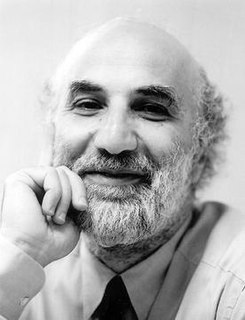A Quote by David Horowitz
The source of the terror in Lebanon as in Iraq is to be found in the Koran and in the despotisms of the Arab Middle East.
Related Quotes
Sadly, a U.S. invasion of Iraq 'would threaten the whole stability of the Middle East' - or so Amr Moussa, secretary-general of the Arab League, told the BBC on Tuesday. Amr's talking points are so Sept. 10: It's supposed to destabilize the Middle East. The stability of the Middle East is unique in the non-democratic world and it's the lack of change in Iraq, Iran, Saudi Arabia, Syria, Egypt that's turned them into a fetid swamp of terrorist bottom-feeders.
I believe that the Iraqis have an opportunity now, without Saddam Hussein there, to build the first multiconfessional Arab democracy in the Middle East. And that will make for a different kind of Middle East. And these things take time. History has a long arc, not a short one. And there are going to be ups and downs, and it is going to take patience by the United States and by Iraq's neighbors to help the Iraqis to do that. But if they succeed, it'll transform the Middle East, and that's worth doing.
If you want peace and well-being to be in place in the Middle East and you want terrorism to be uprooted, then there's no path other than the presence of the Islamic Republic of Iran, you saw that in Iraq, Syria, Lebanon and Yemen that the power that was able to help the people of Iraq, Syria, Lebanon and Yemen in the face of terrorist groups was the Islamic Republic of Iran.
American mission in Iraq is clear: We're hunting down the terrorists. We're helping Iraqis build a free nation that is an ally in the war on terror. We're advancing freedom in the broader Middle East. We are removing a source of violence and instability and laying the foundation of peace for our children and our grandchildren.
There's kind of a hidden point which isn't being brought out, and that is that it is inconceivable that the U.S. would permit democracy in the Middle East, and for a very simple reason. Just take a look at polls of Arab public opinion. They exist. You can't find them in the press, but they exist from prestigious polling agencies. Released by major institutions. And what they show is that if there was democracy in the Middle East, the entire U.S. program for domination of the Middle East would be down the tube.
It was important for me to show that Beirut and Lebanon were once the pearl of the Middle East. Beirut was once called the Paris of the Middle East and to have that feeling of a destroyed place that once was beautiful and glamorous and visually impressive was important. I think it's even sadder to get the feeling that this country, and indeed the whole Middle East, could have been a major force in the world if people would get together and forget about destruction, death and wars. But unfortunately, it's not happening yet.
The tactical issue is ISIS or ISIL in the greater Levant area, which is essentially Syria, and Iraq, Lebanon, Jordan, et cetera. But the wider problem is not just trans-regional in that part of the world, but it's also global. I mean, 40 to 50 countries supplying fighters to this current fight in the Middle East? Come on.
There is something very consistent about governance in the Arab world. Among the Arab countries today in which there is a modicum of internal stability, each is controlled by an Arafat-type figure - an anti-democratic strongman who is able to crush all challenges to his authority. Likewise, among those Arab countries that aren't ruled by a despot, the political dynamic is also consistent: In Lebanon, Iraq, and now Gaza, sectarian violence is the dominant form of political expression.
These others -- the overwhelming majority of Iraq's people -- have repeatedly given every indication of valuing their newfound freedom: voting in two elections at the risk of their lives, preparing for a third, writing and ratifying a constitution granting more freedoms than exist in any country in the entire Arab Middle East. The secret is out, There is something decent unfolding in Iraq. It's unfolding in the shadow of a terrible insurgency, but a society is finding its way to constitutional politics.





































